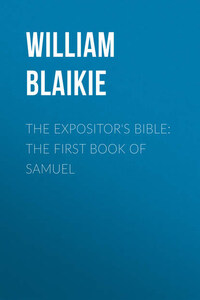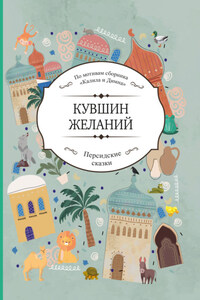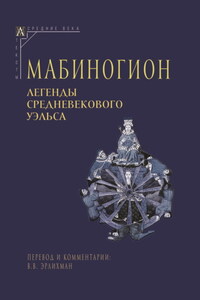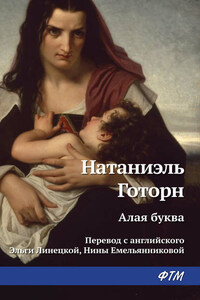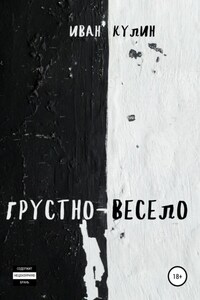I cannot send forth this little sketch of the Life of Chalmers without expressing anew my admiration of the four-volumed biography by my late beloved friend, Dr. Hanna. It is not only admirable as a portrait, but it cannot be read by any sympathetic reader without a sense of humiliation, and without a great stimulus to higher things. It is much to be regretted that Dr. Hanna was unable to carry out the purpose which it is understood that he cherished, of condensing the work into a single volume.
Other memorials of Dr. Chalmers have been given to the world. Among these may be noted: —
1. A Biographical Notice of the late Thos. Chalmers, D.D., LL.D. Read before the Royal Society of Edinburgh. By the Very Rev. E. B. Ramsay, M.A., 1850.
2. Chalmeriana; or Colloquies with Dr. Chalmers. By Joseph John Gurney, 1853.
3. A Selection from the Correspondence of Thos. Chalmers, D.D., LL.D. Edited by Rev. W. Hanna, LL.D., 1853.
4. Mr. Isaac Taylor's elaborate articles in the North British Review, 1852 and 1856.
5. Thomas Chalmers, a Biographical Study. By James Dodds, 1879.
6. Thomas Chalmers. His Life and its Lessons. By Rev. Norman L. Walker, 1880.
7. Thomas Chalmers, D.D., LL.D. (Men Worth Remembering). By Donald Fraser, D.D., 1881.
8. Thomas Chalmers, Preacher, Philosopher, and Statesman. By Mrs. Oliphant, 1893.
9. Recollections of Dr. Chalmers by Professor David Masson, in Lowe's and Macmillan's Magazines.
Recollections by the Rev. Dr. Macaulay in the Leisure Hour.
11. Funeral Sermons and Lectures by Rev. Dr. Cunningham, Rev. Dr. Jas. Buchanan, Rev. John Bruce, Rev. W. K. Tweedie, Rev. John G. Lorimer, Rev. James Julius Wood, Rev. J. A. Wallace, Rev. John Gemmel, Rev. David Couper, Rev. W. Tasker, Rev. A. J. Ross, Rev. Dr. W. Lindsay Alexander, Rev. Dr. Sprague (Albany, New York), Rev. Dr. Sharp (Boston), Rev. Professor Edwards (Andover), Rev. Dr. Smyth (Charleston), etc. etc.
Among the greatest privileges and honours of his life, the writer will ever regard his having been for one session a student under Dr. Chalmers at Edinburgh; for three years a co-presbyter and cordial fellow-worker on his lines, in forming and building up a territorial congregation; and for many years the occupant of one of two chairs of theology which were constituted at the Disruption in New College, in place of the single chair which Dr. Chalmers had held, and thus in a sense, but most unworthily, one of his successors.
EDINBURGH, December 1896.
CHAPTER I
BIRTH, SCHOOL, AND COLLEGE
1780-1803
Thomas Chalmers was born at Anstruther, Fifeshire, on the 17th March 1780, when the flowers were appearing on the earth, and the time of the singing of birds was come. It seems never to have been noticed that this was St. Patrick's day, and no one has ever instituted a comparison between the lives of the two illustrious Scotsmen. But if only we had authentic materials for the life of Patrick, whose Scottish birth seems well established, it would probably be found that there was no slight similarity. Transferring his labours to Ireland, Patrick, with the Gospel of Jesus Christ as his instrument, laboured for the double object of bringing individuals within the Kingdom of God, and elevating and purifying the condition of the country. The same double aim was ever present to the mind of Chalmers. On the basis of the Gospel, he could not separate the social from the personal, the general from the particular, the temporal from the spiritual. He had always an Arcadia, a Utopia, a new spring-tide for his country in his vista; but a spring-tide to be realised in one way only – by the coming of the Spirit from on high.
Anstruther was not a stirring town, for through the union with England it had lost no little of the trade, whether legal or contraband, which in former days, along with the other little towns on the Fife seaboard, it had carried on with France and England. But an abundant element of life and activity was supplied within his father's house, where nine brothers and five sisters, among whom Thomas came fifth, must have sufficed to make any household lively. The father was in fairly prosperous business, and provost of the town. He is described as 'dignified and handsome in appearance, highly honourable, courteous, and kind; and of fervent but not ostentatious piety.' The mother was in person short, thick, erect, devoted to her household, sharing her husband's piety, but so self-restrained that a smile was seldom seen on her face. The family was connected with many members of the middle-class, some also of the clergy, and a sprinkling of the landed gentry.
The parish school of Anstruther, to which Chalmers, persecuted by a scolding nurse, went at the age of three, was taught by a master never very efficient, and in Chalmers's time old and nearly blind, who made up for other deficiencies by his great energy in flogging. There was an assistant teacher who was not much more effective in teaching than his principal, but who was as mild as the other was severe. This gentleman, who survived Chalmers, bore a very touching testimony to his kindness. 'No man,' he exclaimed on one occasion, 'knows the amount of kindness which I have received from him. He has often done me good both as respects my soul and my body; many a pithy sentence he uttered when he threw himself in my way; many a pound note has he given me; and he always did the thing as if he were afraid that any person should see him.' Of Chalmers as a schoolboy the testimony is that he was 'one of the idlest, strongest, merriest, and most generous-hearted boys in Anstruther school.' Had one chanced to come upon the school-children engaged in their various amusements (says one of his biographers), one should soon have distinguished 'one boy above the rest, seeming about ten or twelve years of age, who is the leader in their sports – strong, active, merry, and boisterous, with big head, matted dark hair, large plain features, broad shoulders, well-proportioned but brawny limbs, his laugh always loudest, and his figure always foremost at football and the other games in which they are contending.'

